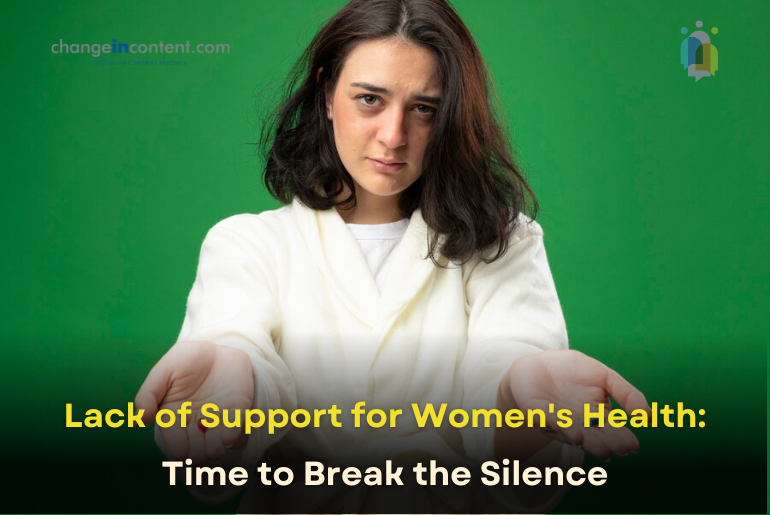The lack of support for women’s health is not new. However, recent incidents showcase that nothing much is changing.
In June 2023, the Madhya Pradesh High Court dismissed six women judges on probation, citing “unsatisfactory performance.” On December 3, the Supreme Court criticised the dismissal of a woman judge who had suffered a miscarriage, questioning how people assess her performance without considering her mental and physical trauma.
Justice B.V. Nagarathna expressed concern over the lack of empathy for women’s health issues, remarking, “I hope such criteria is also imposed on male judges. I have no hesitation in saying this. The lady, she has got pregnant, and she had miscarriage. The mental and physical trauma of a lady who has undergone a miscarriage. What is this? I wish men have menstruation. Then they will know what it is.“
The bench of Justices B.V. Nagarathna and N. Kotiswar Singh emphasised that case disposal rates should not determine a judge’s performance during periods of physical or mental distress. “It is very easy to say ‘dismissed-dismissed’ and go home…. Particularly for women, if they are suffering physically and mentally, do not say they are slow and send them home. Let there be the same criteria for male judges and judicial officers; we will see then.” the bench further remarked.
Is this lack of support for women’s health new?
No. It is not something new. Women have always been expected to perform not just at the same level but often much more than their male counterparts, even when dealing with physical and emotional health issues unique to their gender. But it’s 2024, soon going to be 2025. Isn’t it time to stop labelling women as “unproductive” or “unsatisfactory” just because they are going through pregnancy, childbirth, or other gender-specific health challenges?
Maternity discrimination in the workplace
For many working women, pregnancy brings not only physical and psychological challenges but also work-related issues, including discrimination. Pregnant employees often face unfair treatment, such as denial of promotions, job redundancy, and reductions in pay or job assignments. In many cases, women are dismissed during the early stages of pregnancy, even before they can take maternity leave.
According to the Women, Business and the Law 2021 report, 38 out of 190 economies do not have laws protecting pregnant workers from dismissal. Job protections for pregnant women remain inadequate, with regions such as the Middle East, North Africa, and South Asia lacking fair treatment and support for working women during pregnancy.
More data explaining the lack of support for women’s health
Around 23% of women report workplace discrimination related to pregnancy, often being marginalised or treated unfairly during performance evaluations. One statistic shows that more than 1 in 5 women know someone who has faced maternity discrimination at work. Additionally, a report from the Equality and Human Rights Commission reveals that maternity leave discrimination leads to 54,000 women losing their jobs every year.
Aon’s 2024 Voice of Women study, which surveyed 24,000 women in India across more than 560 companies, reports that 75% of working mothers had a career setback of one to two years after returning from maternity leave. Additionally, nearly 40% of these women said their pay suffered due to maternity leave, and many found their roles changed to positions they did not prefer.
Pushing through pain
Deloitte’s fourth edition of the Women@Work report surveyed 5,000 women in 10 countries, including Australia, China, India, and Japan. According to the report, 27% of working women face challenges related to menstruation, menopause, or fertility. Among those experiencing high pain from menstruation, 40% choose to work through it. This statistic shows that women often feel the need to push through physical discomfort because of a lack of support in the workplace.
25% of women feel they must downplay their menstrual pain at work. They often avoid taking time off due to period pain, fearing their coworkers will see them as fragile and employers will view them as less valuable than men.
According to the Bupa Wellbeing Index, one in eight women (13%) took time off work in the last year because of period symptoms. However, 35% gave a different reason when requesting time off. Many also face symptoms like nausea (31%) and headaches or migraines (48%). Despite these challenges, 42% of women push through severe pain.
About 39% of women reported working through menopause symptoms, a number that nearly doubled from 20% in 2023. However, only 19% of women felt supported by their employers after disclosing menopause as a reason for taking time off.
Women are forced to endure physical discomfort and lack of support at work to avoid being seen as less capable. It’s time for workplaces to recognise and address these challenges with empathy and proper accommodations.
The final thoughts on the lack of support for women’s health
The lack of empathy for women’s health issues, whether related to menstruation, miscarriage, or menopause, shows a concerning gap in understanding and support. As seen in the recent case of the woman judge, the failure to consider physical and emotional distress during performance evaluations leads to unfair treatment. It often pushes women to the brink. The situation is no better for working mothers who, despite their dedication, find themselves penalised with career setbacks, pay reductions, and role changes after returning from maternity leave. It’s time for a change in both corporate policies and societal attitudes, where women are not penalised for their gender-specific health challenges.
Disclaimer: The views expressed in this article are based on the writer’s insights, supported by data and resources available both online and offline, as applicable. Changeincontent.com is committed to promoting inclusivity across all forms of content, which we define broadly to include media, policies, law, and history—encompassing all elements that influence the lives of women and gender-queer individuals. Our goal is to promote understanding and advocate for comprehensive inclusivity.


